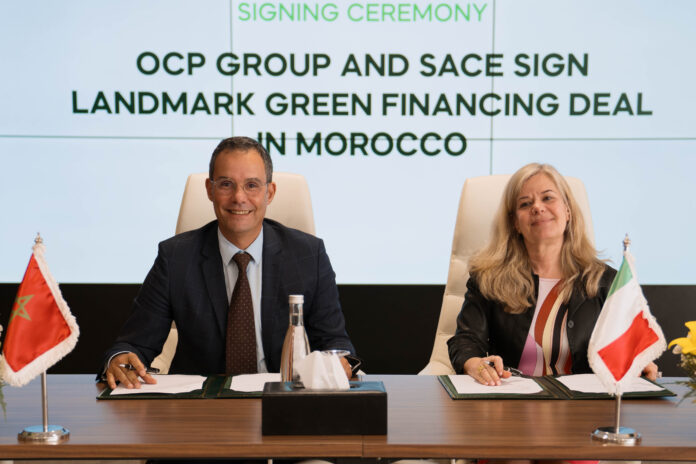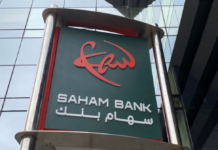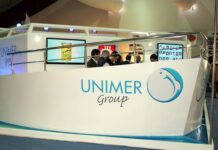OCP Group has secured a landmark €365 million green loan from Italy’s export credit agency, SACE—a first-of-its-kind deal for both parties. The financing is backed by SACE’s Push Strategy and marks the inaugural agreement of this nature guaranteed in Morocco. It also debuts under OCP’s newly introduced Green Finance Framework.
The funding is a key part of OCP’s sweeping $13 billion investment plan, set to run through 2027, which aims to overhaul the company’s entire operations with a strong environmental focus. The phosphate giant is targeting a complete shift to renewable energy within two years, full reliance on unconventional water sources, and total carbon neutrality by 2040.
The loan itself is structured as an untied export credit and was arranged by BNP Paribas and Crédit Agricole CIB. SACE provides full insurance coverage, and the framework promotes closer ties between OCP and Italian suppliers, especially in sectors like green tech, mechanical engineering, and water management systems.
But beyond the environmental angle, the deal carries significant commercial implications. Through SACE’s business matchmaking efforts, Italian companies gain privileged access to one of Morocco’s most influential economic players. Italy’s ambassador in Rabat, Armando Barucco, praised the deal as a strong foundation for expanded industrial collaboration.
From Italy’s perspective, SACE’s international director Michal Ron framed the transaction as both a boost for Italian manufacturing and a signal of Africa’s growing strategic importance in Italy’s Mattei Plan, which aims to deepen ties with the continent. For OCP’s CFO, Karim Lotfi Senhadji, this financing is more than a green initiative—it’s a critical lever for speeding up the group’s transformation into a fully sustainable enterprise, while also strengthening its financial base.
Banking partners BNP Paribas and Crédit Agricole highlighted the cross-border success of the operation. They described it as a model for international collaboration, bringing together teams in Casablanca, Milan, and Paris to back a project with bold environmental ambitions.





